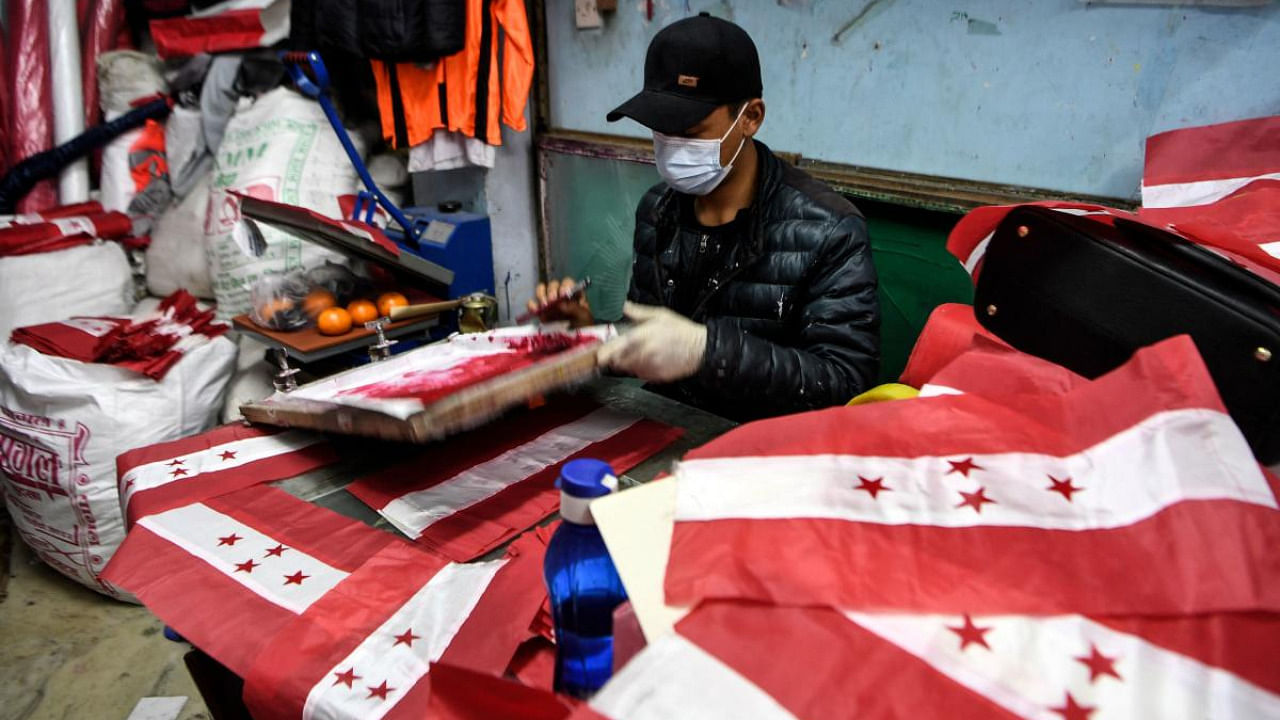
Since Nepal's prime minister dissolved parliament in December, chaos has engulfed the Himalayan nation, with huge protests and the ruling party split into two warring factions.
But for printing shop owner Umesh Babu Shrestha the crisis has brought a welcome boom in orders, after he was unable to pay his rent for nine months because the pandemic dried up business.
Now the flags of Nepal's different parties -- and factions within them -- from across the complex and fractious political spectrum dangle drying in every nook and cranny of his Kathmandu shop.
"Business has really improved. This has given a hope that we can pay off our dues now, otherwise there isn't a lot of other work," Shrestha told AFP.
The smell of paint fills the air as red stars are stamped on one newly-cut cloth after another, before they are hung up in long rows wherever there is space.
The country's demonstrations, which at times have descended into ugly clashes with riot police firing water cannon, are a sea of colourful flags and banners.
The items are must-have accessories whether the demonstrators back or oppose Prime Minister K P Sharma Oli, 69, a wily former political prisoner who rose to power in 2018 promising an end to years of instability.
Flags, said Hem Bahadur Shrestha, a local political leader, are "a signal of my identity and indicator of my ideology".
"Followers of other political parties might carry a different flag. We are with the Nepal Communist Party and this is our flag," he said at one recent demo.
Another printing shop owner, Kailash Shah, had no work for a whole year but has now hired four new workers after receiving flag orders from all across the country of 29 million.
Major shops are now selling up to 3,000 flags a day, and demand is expected to stay strong even after the Supreme Court on Tuesday reinstated parliament.
Oli's dissolution of the legislature came after months of wrangling with former Maoist rebel leader Pushpa Kamal Dahal, who helped the prime minister come to power when their parties merged in 2018 into the Nepal Communist Party.
An unofficial split in the party has now left Oli without a majority in parliament, and he is likely to face a no-confidence vote soon, potentially meaning elections in two years.
"The protests have provided some relief to us... if the election is held, we might be able to earn a bit more," Shah said.